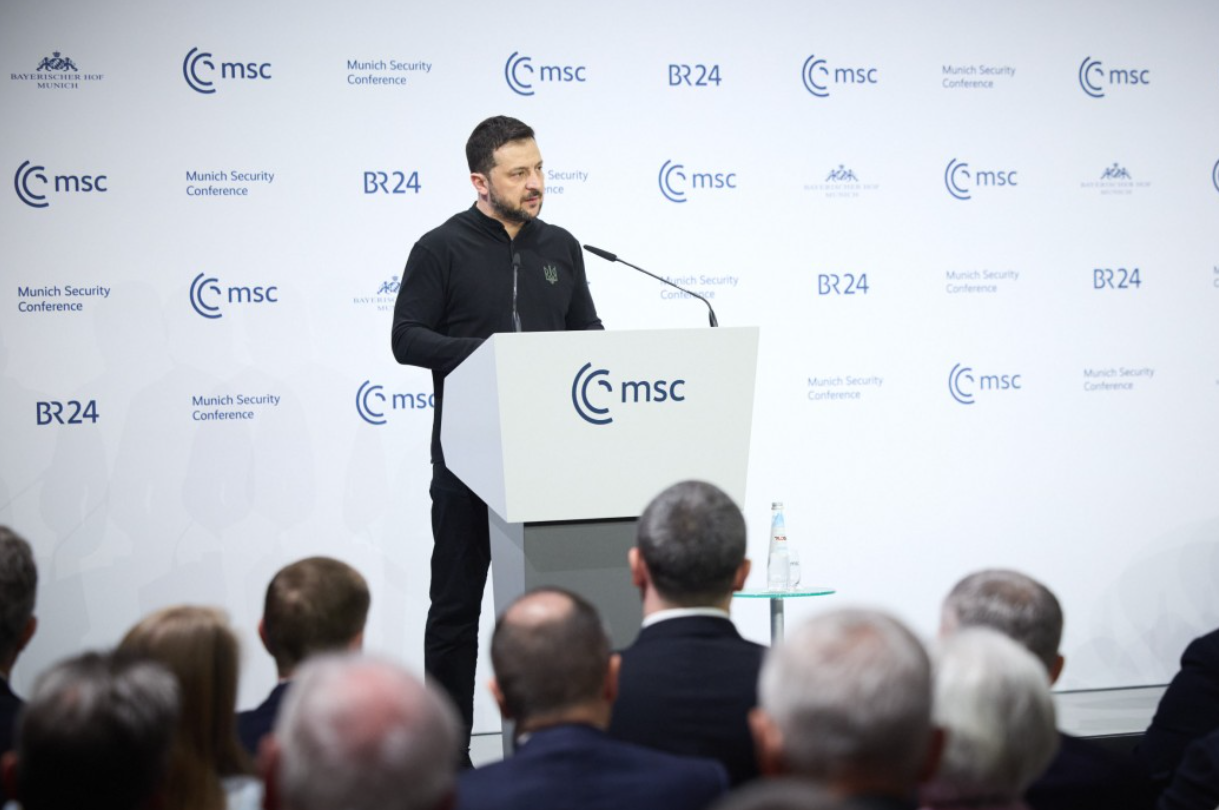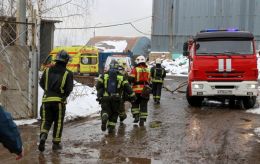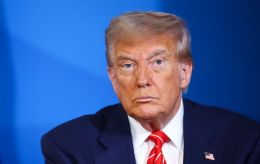NATO, peace talks, 180-day deadline: Key statements about Ukraine in Munich
 Photo: What policymakers said about Ukraine at the conference in Munich (Getty Images)
Photo: What policymakers said about Ukraine at the conference in Munich (Getty Images)
The Munich Security Conference is coming to an end. Over the three days, many statements concerned Ukraine, Russian aggression, and peace talks.
RBC-Ukraine has compiled the main statements of the conference participants about Ukraine.
Senator Graham's view of Ukraine's accession to NATO
At a panel discussion in Munich, US Republican Senator Lindsey Graham suggested that Ukraine should be immediately admitted to NATO in the event of another Russian attack. However, today Ukraine's membership in the alliance is out of the question.
"If we put Ukraine in NATO, it will make Putin mad. Well, I think he's mad already...We're worried about making him mad... Make him scared. Make him think twice about what he's gonna do. If you invade that one, we're going crush your economy, we're going put sanctions on you,” he said.
JD Vance: War must be ended so that it does not happen again in a few years
After meeting with Zelenskyy on the sidelines of the Munich Conference, US Vice President JD Vance talked about achieving a lasting peace in Ukraine.
"We want the war to come to a close, we want the killing to stop, but we want to achieve a durable, lasting peace, not the kind of peace that's going to have Eastern Europe in conflicts a couple of years down the road," he said.
Agreement on rare earths between Ukraine and the US
On the sidelines of the Munich conference, Senator Graham remarked on the deal on rare earth metals that Ukraine and the United States want to conclude.
"President Trump can go to the American people and say Ukraine is not a burden, it's a benefit. They're sitting on top of trillions of dollars worth of minerals that all of us can benefit from by aligning with the West," Graham said.
Earlier, the media reported that the American version of the minerals agreement allegedly did not suit the Ukrainian side. Later, in a conversation with journalists on the sidelines of the conference, Zelenskyy said that negotiations on it were ongoing.
The agreement is signed at the ministerial level, Zelenskyy said. But he as the president influences the quality of this document. That's why he didn't let the ministers sign the agreement, because, in his opinion, it's not ready and it's not protecting Ukraine's interests.
Zelenskyy: It's time to create a European army
Speaking at the Munich Security Conference, Zelenskyy urged Europe not to count on the United States for support, as it can say “no” to security issues.
“Many leaders have talked about Europe which needs its own military and army. Army of Europe. I believe that time has come. The armed forces of Europe must be created,” he said.
Read more statements of the president by following the link.

Photo: President Volodymyr Zelenskyy in Munich (president.gov.ua)
Trump special envoy's 180-day deadline
The US President's Special Envoy for Ukraine, Keith Kellogg, has publicly voiced his own deadline for engaging all parties in resolving Russia's war against Ukraine.
"I'm on Trump time. And the Trump time means to do a job today and he wants to know tomorrow why is it not solved," Kellogg said at a Ukrainian Lunch in Munich.
The US does not see Europe 'physically' at the negotiating table
Kellogg said that Europe is unlikely to be “physically” represented at the negotiating table for peace in Ukraine. But the interests of European partners will be taken into account.
"I want to make sure when you say 'at the table' you define the term. Do you mean you are sitting at the table three? Or all of your interests are brought into the discussion? Then the answer is yes. If it's sitting, like you're sitting right there, then that's going to be a different story," he clarified.
According to Trump's special envoy, the United States will act as a mediator in peace talks between Ukraine and Russia.
Zelenskyy: Ukraine will decide who will sit at the negotiating table
Zelenskyy reacted to Kellogg's statement about Europe at the negotiating table, which caused tension among Europeans. In a talk with journalists, he reminded that the war is currently taking place on Ukrainian territory.
"The war is not in the United States and not in the EU, God bless. Yes, but, it's a pity, the war is in Ukraine. That's why, Ukraine has, I think that, the leadership in the case of who has to be at the table," Zelenskyy said.
The peace agreement will not be a 'determinant of success'
Trump's special envoy emphasized that the future peace agreement on Ukraine will not be a repeat of the Minsk agreements and should guarantee stable and long-term peace.
“A ceasefire and long-term peace agreement are not going to be the real determinant of success. The real determinant of success will be the first time a ceasefire is broken, and how the national leaders and all countries respond," said Kellogg.
He added that the full-scale war started by Russia would not end in victory for Ukraine, as in World War II.
“Let's be totally honest. The Ukrainians have fought valiantly. The first thing to do is to stop the bleeding, and then treat for shock. This is a part of the process we have to figure out what it looks like. If you are thinking about victory on World War II terms, that is probably not going to happen,” Kellogg explained.
Kellogg: Putin will have to give up territories
The Russian leader will have to make concessions as part of a peaceful settlement of the war, Kellogg believes.
"In my view, there must be territorial concessions. There could also be refusing to use force in the future and downsizing military forces,” he said.
Munich Security Conference 2025
The Munich Security Conference started on February 14. It brought together more than 50 world leaders and more than 800 participants in total.
Over the course of three days, key European and American figures spoke at the Munich Conference, including the head of the European Commission, the US Vice President, the President of Ukraine, and the NATO Secretary General.
The format of the conference does not provide for joint final statements. But the forum's chairman, Christoph Heusgen, hopes that this year's Munich will help to outline steps toward peace in Ukraine.

